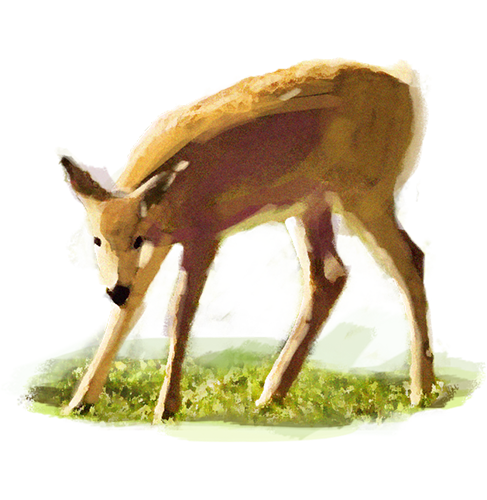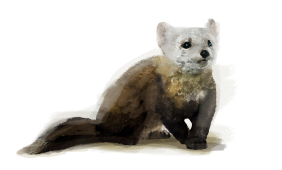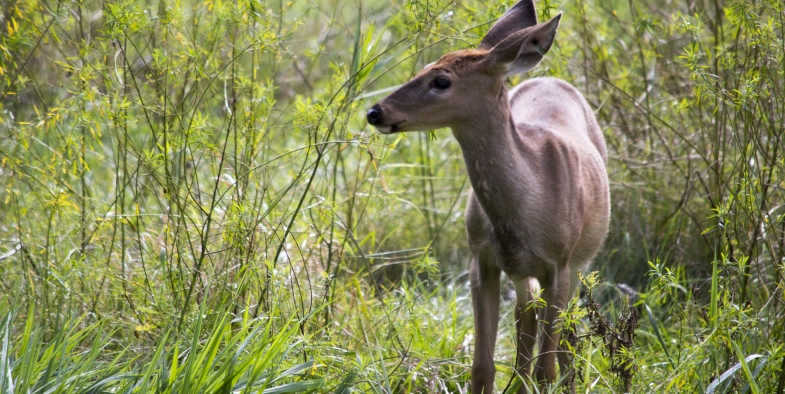
Article
Story: Moki, the White-tailed Deer
Sometimes an arrival is known and planned such as if the animal arrives from another zoological institution or if it requires care in a rehabilitation center before joining the Ecomuseum Zoo family. In other cases however last minutes calls may occur.
Just this past summer, on June 13th 2017 precisely, such a call was received. A wildlife protection agent had rescued a fawn and was looking for a new permanent home. Luckily we were able to welcome him and that’s how Moki arrived here at the zoo. Only two days old at the time, he obviously had not been weaned and was not in great shape. We knew that the first 24 hours would be critical.
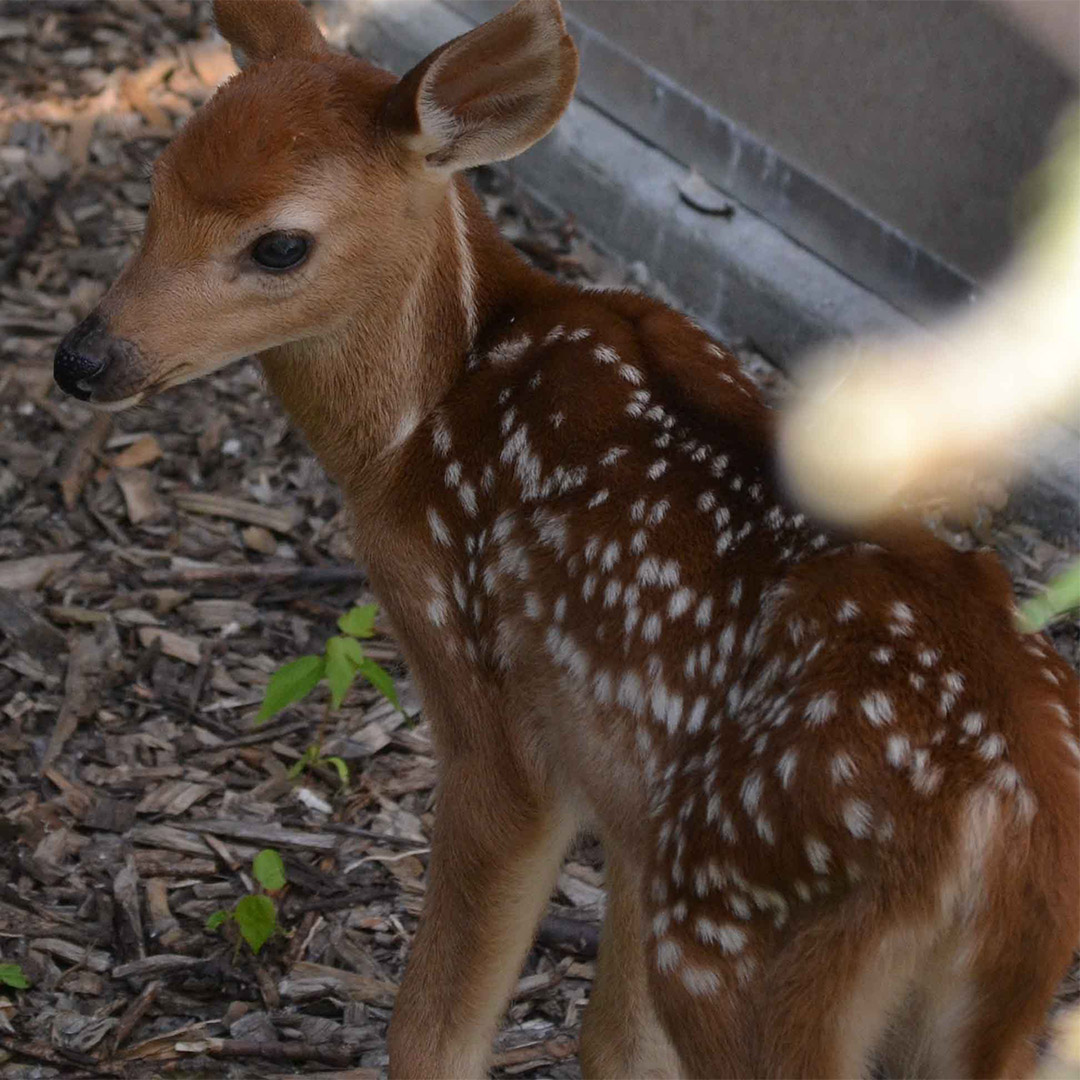
Moki was found in the Gatineau region on vast land area owned by private citizens. In the wild the female White-tailed Deer, or White-tailed doe, often leaves her young fawn alone for many hours during the day. Since fawns have no detectible body odor that would attract predators and they are well camouflaged by the white spots on their coat, this tactical decision by the female proves quite efficient in protecting the young fawn. It is important to stress that this means that young fawns who are “found” and assumed to be abandoned are probably just waiting for the doe to return. Moki’s case was unfortunately different. The female was found just a few meters from him, sadly killed by a predator.
It was just luck that the predator didn’t also find Moki!
The land owners stumbled across him on a walk and knew exactly what to do: they called a wildlife protection agent to come get the young fawn. When he arrived here at the zoo a system was put in place to ensure regular feedings. Once the first 24 hours had gone by with a few feedings, Moki seemed to be gaining strength. For the first two weeks he was bottle fed 5 times a day between 5 a.m. and 10 p.m. Fawns are only weaned after 4 months so the entire team pitched in to cover all the feedings making sure Moki grew strong and healthy!
Throughout the nursing period the team limited contact with him as much as possible to prevent him from imprinting on humans. When wild animals lose their bearing and become too dependent on humans important problems psychological problems can arise in adulthood. The first priority is always the animal’s well-being both short and long term.
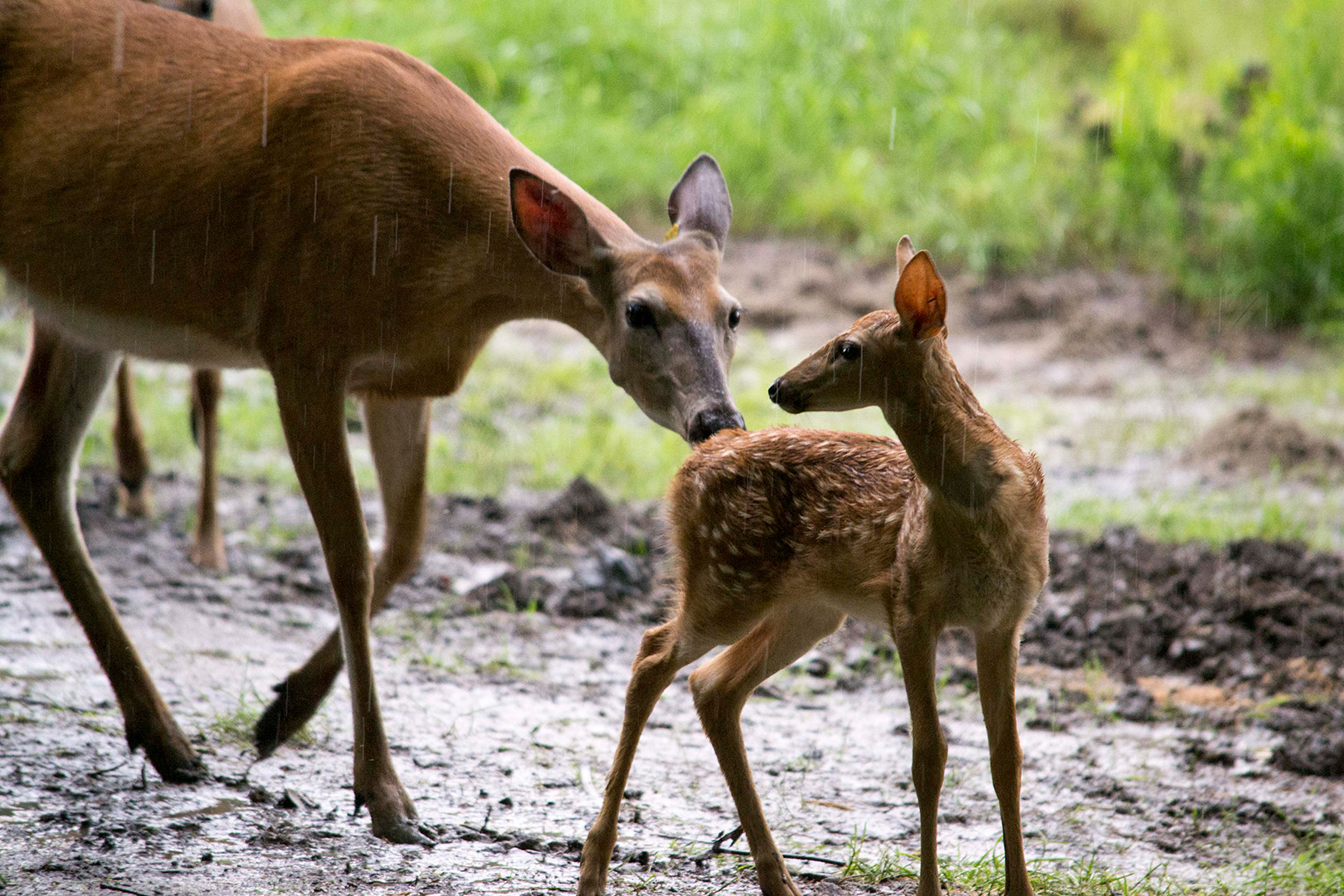
After a few weeks Moki was introduced to the four adult females that have been at the Ecomuseum Zoo for some time now (yes, as you can see on the photo, it was raining A LOT that day!). While they were a bit hesitant at first about the presence of this new individual, they quickly took him under their wing (!) and now Moki is just part of the group. Eventually he’ll be chief of the herd which is why we named him Moki signifying “Chief” in the language of Indigenous peoples.
Today Moki is a curious and smart young deer. At approximately the 12th week all his white spots disappeared, a significant milestone in the development of young adults. As of next year he’ll start to grow antlers and we look forward to watching him develop despite a rough start to say the least.
Don’t hesitate to come by to meet him in the new White-tailed Deer living space!
